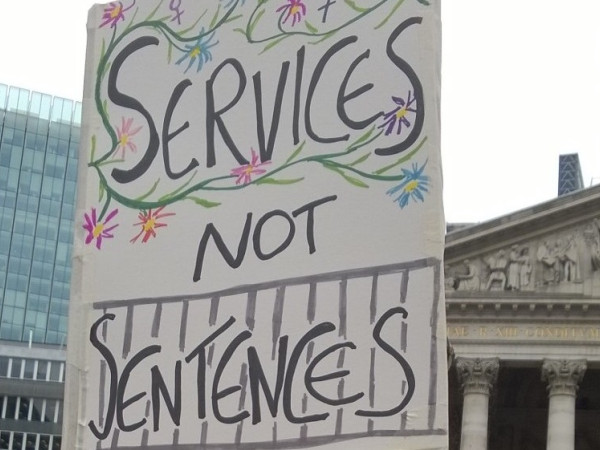
Women’s centres and a public health approach must be at the heart of a bold agenda to deliver a justice system that works for women.
The call comes in a new report, out today from the National Women’s Justice Coalition and the Centre for Crime and Justice Studies.
Breaking out of the Justice Loop argues that the criminal justice system, designed for men, has consistently failed women for years. It is co-authored by Naomi Delap, Director of Birth Companions and Liz Hogarth OBE, former policy lead on women’s justice at the Ministry of Justice and independent consultant.
Recent history, the report notes, has been littered with false starts and promising initiatives that have lacked government commitment to see them through.
- The momentum generated by Baroness Jean Corston’s landmark report on women in the criminal justice system, published in 2007, quickly dissipated.
- After years of inaction, the underpowered Female Offender Strategy published in 2018 was, the report argues, “doomed to be ineffectual”.
- Following the publication of a further delivery plan in 2022, progress “has been glacially slow and superficial”.
The latest fresh start was signalled by the Justice Secretary Shabana Mahmood in her speech to the Labour Party conference last September. “Prison isn’t working” for women, she said, as she announced the formation of a Women’s Justice Board, with the goal “to reduce the number of women going to prison, with the ultimate ambition of having fewer women’s prisons”.
Welcoming the announcement as “a strong opening gambit”, Breaking out of the Justice Loop argues that we must “learn from the lessons of the past in order to avoid making the same mistakes; and look to other models for solutions in order to deliver, finally, a justice system that works for women.”
Our prisons, the report point outs “are full of trauma”. More than 60 per cent of women in prison have experienced domestic violence and more than half have experienced abuse as a child. Far from rehabilitating women, prisons actively harm them and their children. Moreover, racially minoritised women are “overrepresented at every point” of the criminal justice system.
Given the extent of the systemic challenges, the report makes four main recommendations to ensure “the ambition for transformational change for women is finally realised”.
- The Women’s Justice Board should more clearly be modelled on the Youth Justice Board, with a ring-fenced budget and independence from direct ministerial control.
- Sentencing should reflect the specific needs and vulnerabilities of women, with a presumption against imprisonment and a central role for effective probation practice.
- Women’s centres and specialist organisations should be “at the heart of a holistic, woman-centred and integrated approach”, with sustainable funding underpinning this work.
- A public health approach, emphasising prevention over punishment, should be implemented “to address the root causes of women’s criminalisation”.
Naomi Delap, Director of Birth Companions and a report co-author, said:
The stakes are high. The formation of the Women’s Justice Board and its new strategy offers a once in a generation opportunity to close the majority of women’s prisons, save money, reduce reoffending and improve the lives of women, their families and communities. We cannot afford for this to fail.
Abbi Ayers, Director of Strategic Development at the National Women’s Justice Coalition, said:
Since it was first established in 2021, the National Women’s Justice Coalition has been calling for critical reforms to justice policy to reduce the female prison population and better utilise community sentences for women. Our partners are proud to support and champion the solutions-led thinking and key recommendations in this report.
Helen Mills, Head of Programmes at the Centre for Crime and Justice Studies, said:
With the new Women's Justice Board, the government has made a welcome commitment to a fresh start for criminalised women and girls. Given the disappointments of the past, there is a real concern that the fine words will not be matched by action, resulting in another lost decade.
Breaking out of the Justice Loop offers a compelling account of what has gone wrong in the past and practical recommendations to avoid repeating the same mistakes again.
On Tuesday, 18 March, the Centre for Crime and Justice Studies, in collaboration with the National Women’s Justice Coalition, will host the event Breaking out of the Justice Loop.